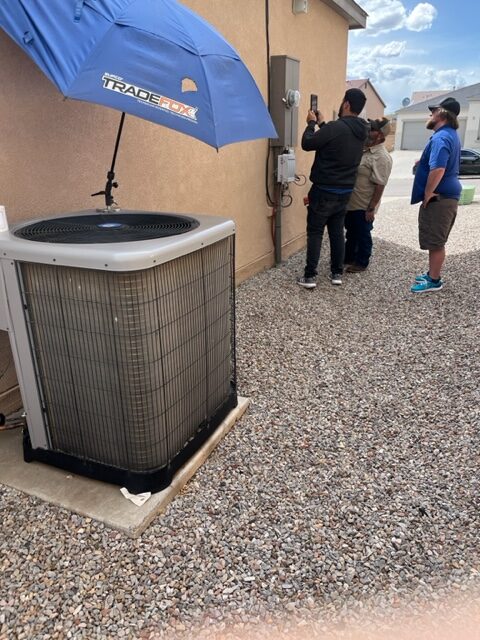
Choosing an HVAC system for your home can be tricky. Should you go for a heat pump or a furnace? What’s the difference between a split system and a packaged unit?
With so many options, it’s hard to know where to start. This HVAC overview breaks down the most common types of heating and cooling systems to help you pick the perfect fit.
Split System – The Traditional Setup
The tried and true split system has an indoor unit paired with a matching outdoor unit. For heating, this usually means a furnace or air handler inside, connected to either an AC condensor or heat pump outside. The main benefit is keeping noisy equipment like the compressor outside while providing conditioned air through ductwork inside.
Split system configurations include:
- Furnace + AC – Best for climates with moderate winters and hot summers. The furnace heats and the AC cools.
- Air handler + heat pump – Ideal for milder climates. The heat pump handles both heating and cooling.
- Furnace + heat pump – Made for colder regions. The heat pump works down to a certain outdoor temperature, then the furnace takes over for the deepest winter cold.
Hybrid System – Get the Best of Both Worlds
A hybrid system pairs an electric heat pump with a gas furnace in one dual-fuel setup. How does it work? The heat pump handles heating down to around 35°F outdoor temperature. Below that threshold, the system automatically switches to the more powerful furnace.
This hybrid approach takes advantage of the energy efficiency of a heat pump for milder weather, while using the furnace only when truly needed for frigid temps. The end result is comfort and savings!
Ductless Mini-Split – No Ductwork Required
Mini-split systems are a great option when installing ductwork isn’t feasible. A small outdoor compressor/condenser connects to one or more indoor wall-mounted units. These systems work well for:
- Additions, garages, attics, basements – Zones with no existing ductwork
- Open floor plan homes – Allows heating and cooling separate zones
- Renovations – Avoids major construction to install ductwork
- Homeowner DIY installation – Mini-splits are relatively easy to install
Ducted Mini-Split – Include Hidden Ductwork
Ducted mini-splits offer a middle ground between traditional ducted systems and ductless models. Small flexible ducts in walls, floors, and ceilings distribute air from an outdoor condenser to vents in different rooms. Benefits include:
- More even heating and cooling than ductless units
- Doesn’t use large bulky ducts running through the house
- Zones can be controlled independently
- Excellent for renovated homes with minimal ductwork space
Packaged System – All-In-One Convenience
Packaged systems put all heating and cooling components together in one outdoor cabinet. This avoids taking up interior space for an air handler or furnace. Packaged units work well for:
- Small homes without room for indoor equipment
- Attached garages or external utility closets
- Guest houses, pool houses, workshops – structures with no existing ductwork
- Fast and affordable installation since there’s only one unit to hook up
- Quieter operation with all parts located outside
Find the Right System for YOUR Home
With so many HVAC options out there, how do you choose? Here are some key factors to consider when deciding on the right heating and cooling system:
- Climate – What temperatures do you typically experience throughout the year? Mild or more extreme weather will impact your needs.
- Utility costs – Compare expenses of gas vs electric in your area. This may influence choosing a furnace, heat pump, or hybrid dual-fuel setup.
- Space – Do you have room for indoor equipment or is a packaged outdoor unit better? Look at existing ductwork or lack thereof.
- Noise – Packaged and ductless systems are quieter with all components located outside.
- Efficiency – Newer systems generally offer improved energy efficiency, saving you money long-term.
Ultimately, there’s no universally “best” HVAC system. The right fit depends on your unique home and family. Work with a reputable contractor to assess your needs and recommend the ideal equipment.
The pros know how to tailor the perfect climate control solution to keep you comfortable while optimizing efficiency and costs. Consult the experts so you can make the right decision you should!

